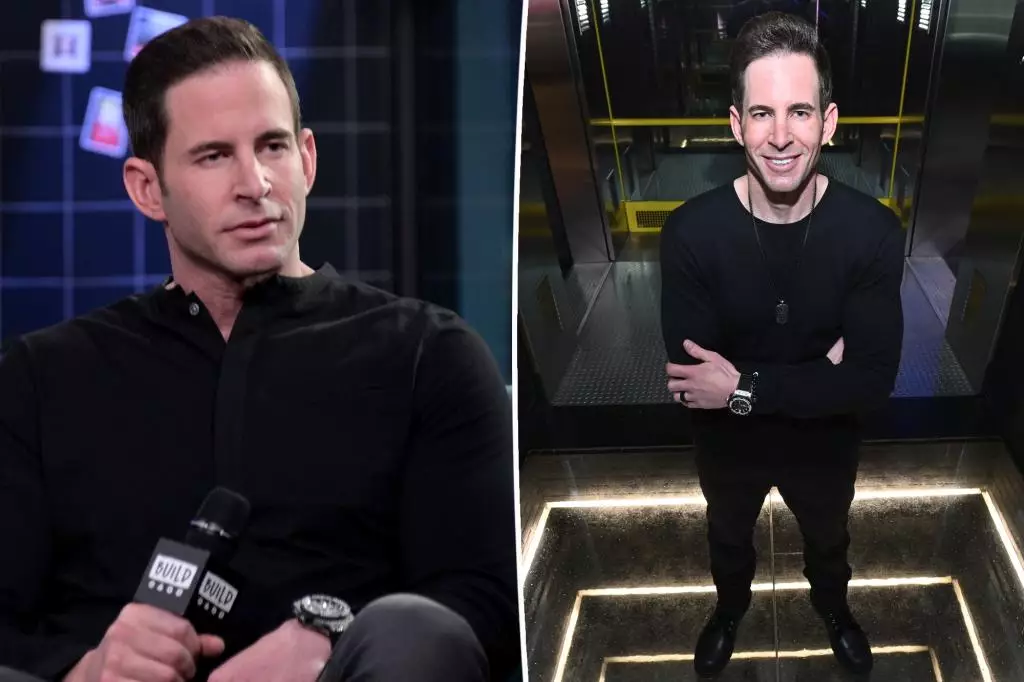In the glitzy world of reality television, Tarek El Moussa, the star of the hit show “Flip or Flop,” has found himself embroiled in a scandal that tarnishes his public persona. An incident in Las Vegas on June 5 has raised eyebrows and sparked conversations about the nature of celebrity and the consequences of violence. According to reports from the Las Vegas Metropolitan Police Department and details obtained by TMZ, El Moussa’s response to a seemingly innocuous encounter took a shocking turn, highlighting how quickly things can escalate in a world defined by the spotlight.
The roots of the confrontation stemmed from a minor interaction at the Palazzo, where a fellow casino-goer unintentionally bumped into El Moussa’s father’s chair at a roulette table. Instead of diffusing the situation, El Moussa’s reaction was vehement and impulsive. After the individual allegedly patted his father on the shoulder and uttered a few words, the reality star jumped into action. His decision to intervene, while ostensibly to protect his father, begs the question: at what point does protective instinct become unwarranted aggression?
Violence and Celebrity Culture
What followed was a violent altercation caught on surveillance cameras: El Moussa reportedly kneed the man in the head with such force that witnesses described the encounter as “bad,” with one individual claiming it left the man temporarily unconscious. The reality star then advanced on the individual, delivering multiple punches to the head while the man lay defenseless on the ground. The police report indicates that the alleged victim sustained visible injuries, including bruises and a cut on his face.
This incident raises significant concerns about the implications of celebrity culture and the expectations placed on public figures. El Moussa, whose life has been largely documented on television, holds a position of influence, especially within the realms of home renovation and real estate. Yet, this expression of unchecked aggression starkly contrasts the image he has curated for himself as a loving father and savvy businessman. The dichotomy of his public and private persona invites scrutiny into how fame can blur the lines between personal responsibility and public behavior.
The Human Cost of Aggression
Interestingly, the aftershocks of the incident extend beyond physical injuries. The fallout could have a negative impact on El Moussa’s brand image, complicating his relationship with fans and industry peers alike. The repercussions of such actions can deeply undermine the credibility cultivated over years. His justification for the altercation—asserting he acted out of a desire to protect his elderly father, who reportedly suffers from back problems—while humanizes him, also suggests a possible inability to handle conflict in a more constructive manner.
Moreover, we must consider the victim’s perspective. Although the alleged victim refused medical attention—a behavior not uncommon in such spontaneous altercations—the emotional and psychological toll of the incident is undeniable. Physical violence can leave scars far deeper than those visible on the surface. The long-term implications for both the aggressor and the victim are far-reaching, affecting mental health, relationships, and professional opportunities.
Coexistence of Fame and Responsibility
El Moussa’s predicament is not merely an isolated incident; it reflects a larger issue within the celebrity ecosystem where aggressive behavior can surface under pressure and where the stakes are often reduced to public image. With great fame comes the responsibility to navigate personal conflicts without resorting to violence. The society nearly fawns over sensationalism, leading some public figures down a path of toxic behavior that does not align with their supposed values.
While El Moussa has opted to maintain a low profile following this incident—a strategy often advised to high-profile individuals caught in scandals—it remains to be seen whether he can truly make amends and learn from this event. His popularity depends not just on his insights into real estate, but also on the authenticity he projects in his public life. Restoring that narrative might be a more challenging renovation than any home he has worked on in the past.

